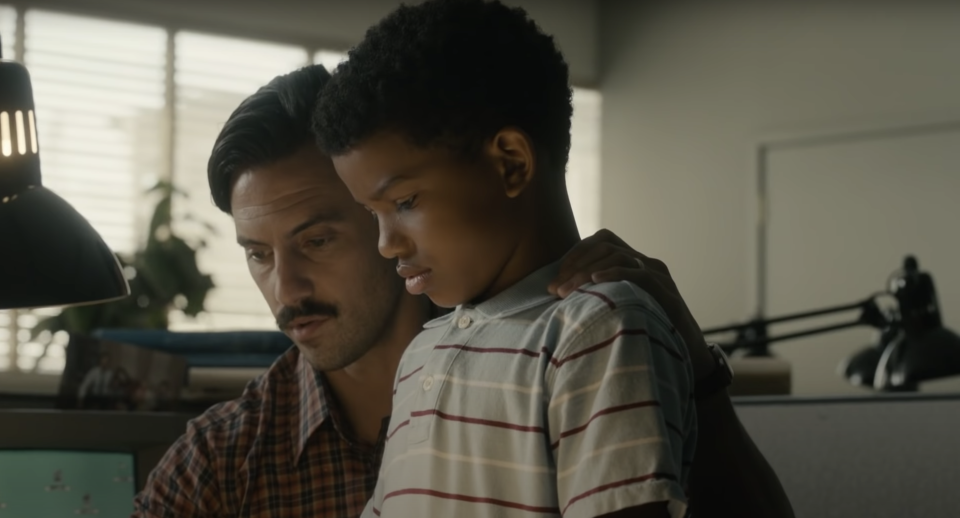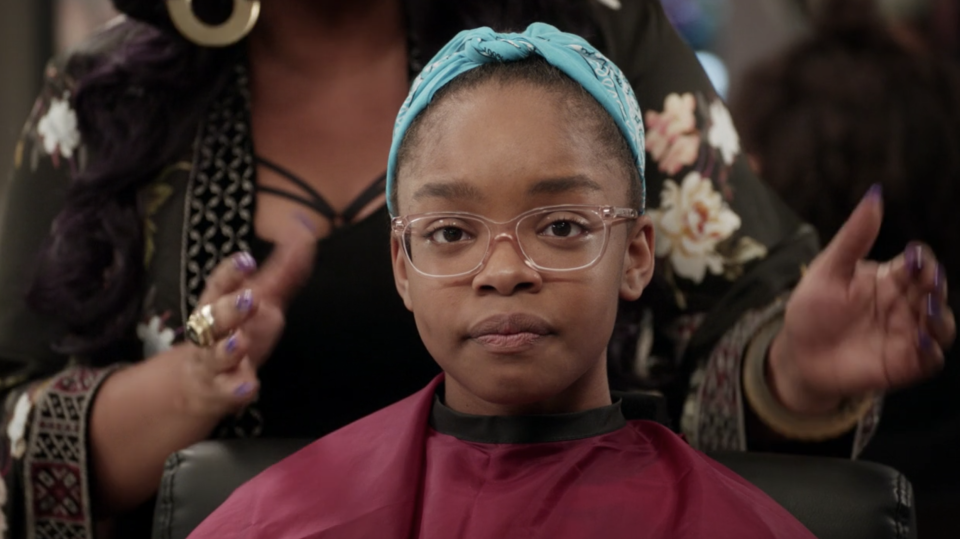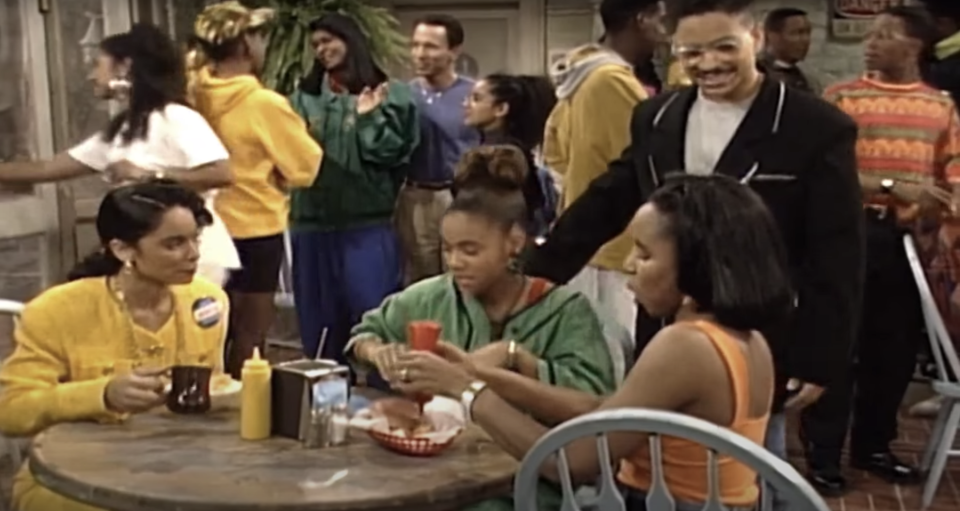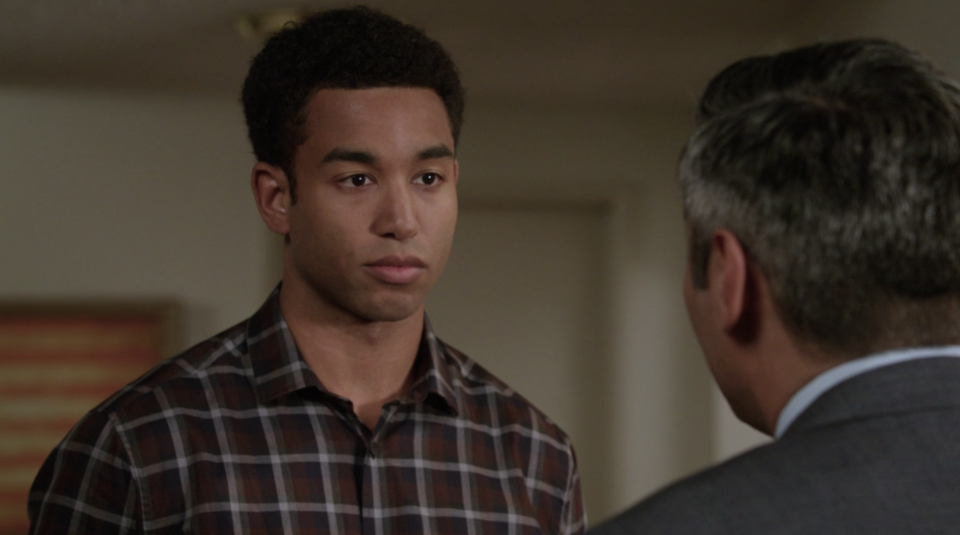Black People Who Were Adopted By White Parents Are Explaining The Trauma Of Adoption, And It's A Necessary Read
We recently asked Black members of the BuzzFeed Community to tell us about their experience being adopted by a white family. Here's what they had to share:
1."I was adopted into a white Christian missionary family when I was about six months old. While I can see and appreciate the advantages that gave me, I do wish I had more exposure to Black culture. We lived in the Philippines, so I understand that wouldn’t have been easy, and I wouldn’t trade my international experience for anything. But I did feel like I couldn’t really fit in with either crowd. Comments like, 'I usually don’t get along with Black people, but you’re ‘cool.’ or 'You’re very articulate and intelligent!' were very hurtful, and I am still recovering from remarks like that. My parents and siblings now are amazing at asking questions about how it might feel to be me in the current climate. They are very pro-BLM, so I am very happy about that. The whole situation is so complex and multi-layered, so I hope people don’t see multiracial adoptees as a monolith."

2."I was adopted by a white father and a Chinese mother, and I feel more connected to Asian culture than to Black or white culture. In that same vein, I love my family, but their microaggressions make me question so many things about my experiences. Not to mention, my hair is my biggest issue. I never know where to go or what to do, so I just end up with this matted ball on my head because I get so overwhelmed—especially due to having a mental illness. Knowing that there are TRA (Transracial adoption) support groups out there I can join makes me feel like I might actually find some peace."

3."I am of African American, Trinidadian, and Indian descent—something I didn’t learn until I was 18 when my records were unsealed—and I was adopted by a white family at six days old. My parents and non-adopted sister are amazing. They always have been and always will be. Part of this is because they are genuinely good people—the kind of people others approach on the street to say, 'I know your dad; he helped me with X thing. He is so amazingly nice!' This is no replacement for education and work, but I definitely think it helped. I was raised in NYC, where there were many people of different cultures and races."
"However, as a kid, my ability to be directly exposed to diversity was limited. I was mostly surrounded by my large Italian conservative family and the people at my school. I went to a private, progressive school founded by a lesbian, which emphasized acceptance, education on different cultures, and student connections. I am extremely lucky to have attended, and it was an incredibly formative experience. My parents recognized the importance of this school and paid the high tuition, even though my dad is still paying it off. As great as the school was, it wasn’t perfect. One of the hardest things for me was the lack of diversity. The few Black people I met at school or in my youth often told me I wasn’t 'Black enough.' At the same time, I could never fully fit into white society."

4."I was adopted by white parents after being abandoned in an airport as a newborn. My parents are amazing, and I love them dearly! They did the work long before they were encouraged to. My mom took me to Black churches, events, and salons—willing to learn all she could. When she didn’t know something, she didn’t pretend to. She always encouraged me to find the answers I needed and helped when I wanted her to. She raised me to be proud of and celebrate who I am. Bless her heart, she even learned how to do my hair."
"My advice: STOP SAYING that we 'think we’re white' simply because we speak a certain way or listen to unexpected genres of music. Growing up in a white family, living in white neighborhoods, and having to be accepted by very white worlds, trust me, we KNOW we’re NOT white and have no desire to be. We simply didn’t have anyone to teach us how to 'be Black,' yet we want to learn, so we constantly feel like we’re catching up."

5."I am a Black biracial woman, adopted by white parents when I was five and a half months old, so I never knew any biological family. I don’t think my parents ever discussed my race, but since I was in a white town and a white school, people noticed. I was bullied terribly in school, yet it was my first-grade teacher—not my parents—who explained slavery to me. It was as if, since race didn’t matter to them, they assumed it wouldn’t be an issue for anyone else. Maybe they didn’t know how to address the subject of race. I don’t know. My mom could never do anything with my afro-textured hair, so it got cut. I had no Black role models and no ties to the Black community (there wasn’t one where I lived). I had my first Black friend when I was a freshman in college. Today, at almost 50 years old, I know nothing about Black culture except what I see on TV."
"To those who adopt outside their race and culture: PLEASE find a way to connect your child to their racial and cultural heritage. Find appropriate social groups for them. Teach them about their ‘other side.’ Don’t expect their school to do it for you. Celebrate cultural holidays that match their background. If you’re unsure how to open doors to cultural connections, ASK for help. Help your child learn about all of who they are."
—Anonymous

6."I am bi-racial (Black and white) and identify as Black. I was adopted by white parents when I was two months old. What I want others to know is that I did not choose to be born. I did not choose my life to go from one traumatic experience to another, from the culture shock of living in a white society to being treated like a zoo animal in school with all white children. This is a lot for a child to process. I am 50 years old."
"I am just now being able to understand my anger at how I was treated. My adoptive parents did the best they could with the lack of knowledge they had, but I was constantly told, 'I should feel lucky that I was chosen.' WHAT? Please, if you are going to adopt, please think about the trauma caused by interracial adoptions. Learn the child's culture before. Teach the child about culture. Realize how difficult it is for the child to not look like you. Ask about trouble at school. And, if the child is able to open up about problems they are having (there will always be problems, whether you are aware or not), please listen without judgment. Do not try to 'figure out' why things are so difficult for them or why they don't want to be around people. If you cannot do that, do not adopt. You are not ready and will cause more trauma. Why is the focus on adoptive parents as saviors? How about focusing on the adoptee being a survivor? There is so much more I could say about being a Black child adopted by a white family. Problems in school, accusations of bad behavior, continuous observation of preferential treatment of white biological siblings. I wish I could find a support group!"
—Anonymous

7."I don't even know where to start. The trauma is deep, and I will say I am from Uganda. I was born there in 1968 and lived in an orphanage. I was brought here in 1971 by a young white Peace Corps couple and raised by them in white suburbia. I am going to write a book about it someday. I've started a bit. I am waiting until they pass because they are really lovely people and the things I have to say will hurt them. Just this paragraph has exhausted me."

8."I want people to know that it’s rough growing up when people keep telling you 'you don’t act Black' yet you don’t look white. It could be awkward going to extended family gatherings with people looking at you like you don’t fit in. Also, when you go out to restaurants, waiters will ask if the check is separate or not, even though you are just a kid. Stores will say you need a parent even though you're standing right next to them."

9."I was adopted by white parents when I was two months old, and they did their best to incorporate my heritage when they could but to be honest, I don't think they even really knew where to start, which I absolutely can't blame them for. Even trying, there's only so much you can do without actually knowing. They did their best, and being mixed, the hardest thing was not feeling accepted by Black communities because of how I talk or act being raised by white parents."

10."So I was adopted when I was three old by an all-white family that had adopted three white children before me. Not once until I was nine years old did they tell me or in any way acknowledge I was Black. This only happened because I would be scrubbing at my skin, trying to get the Black to come off. I thought since my birthmark was a white spot on my side, everyone was born Black, and then it eventually fell off. For context, I lived in an all-white neighborhood and went to a private school that was mostly white. I tell this story to say that we adoptees struggle with our identity, and we do so as kids, teens, and adults. We are still learning and trying to find ourselves and reconcile our past so we can step into and embrace a culture that is, to an extent, foreign to us."
—Anonymous

11."I was adopted at birth. I am mixed (Black and Jewish) and was in an arranged adoption into a Jewish family at birth. My family was white Jewish, and I was the only Black Jewish girl. I think education, knowledge, and exposure are important. Did I disagree with my mother on some things as far as how I present myself as Black? Yes. However, I have never thwarted an opportunity to connect with Black people or people of color. I was picked on, of course, by outsiders, and my family stood up for me. I was exposed to multicultural and Black culture very young. I went to a camp that was filled with inner-city kids who were white, Black, Asian, Latino, and more. When my parents divorced, my mom purposely moved to a mixed neighborhood in Long Island, which is not easy to find."
"I understand what some adopted Black children say about their white adoptive parents, but I will always say my family is my mom and dad and siblings. My biological parents are just that. Biological. Transparency, openness, and educated communication are what it takes. That is what my family did, and I am sure there are other white adoptive parents that guide with those principles."
—Anonymous

12.And finally, "I was adopted by an older white couple in a predominantly white town. We were more than comfortable, and I always had everything I needed. Growing up and having no one around me who looked like me (friends, family, or teachers) gave me major identity issues. Something I’m still struggling with today. Every time we played basketball in the gym, I would have the worst anxiety, thinking everyone would want me on their team, and I would let them down every time. I found myself straightening my curly hair all the time. I would wake up hours before school when it was still dark out to do so. Neither of my parents made any effort to connect me with my roots. In school, I was taught about slavery, MLK, Rosa Parks, and Malcolm X, but not Obama and not the BLM movement. Now, as a 23-year-old, I struggle in settings with African-American and Black people. I am still looking for my community."
—Anonymous
Submissions have been edited for length and/or clarity.
Check out more Black-centered content by exploring how BuzzFeed is celebrating Black History Month this year! Of course, the content doesn't end after February. Follow BuzzFeed’s Cocoa Butter on Instagram, TikTok, and YouTube to keep up with our latest Black culture content year-round.


